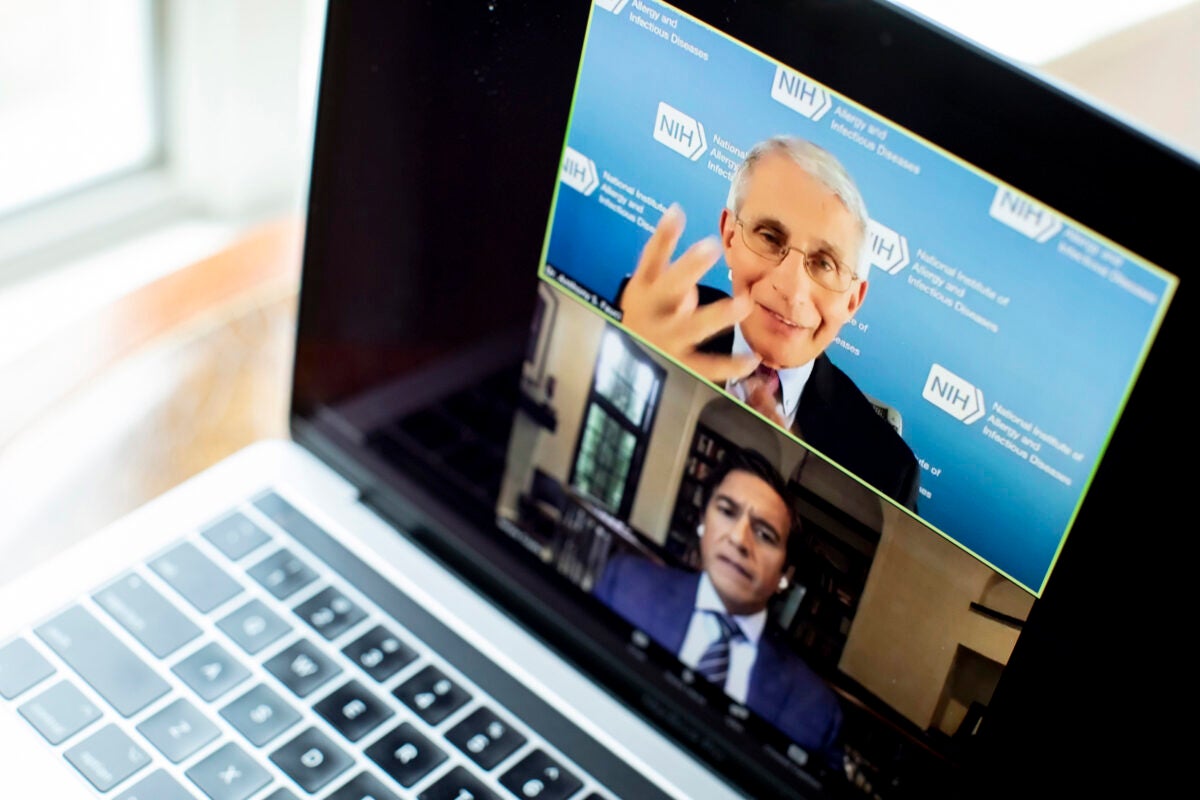Health
Time for a rethink of colonoscopy guidelines?
Mingyang Song.
Stephanie Mitchell/Harvard Staff Photographer
Change informed by new findings would help specialists focus on those most at risk, researcher says
A new analysis of nearly 200,000 adults shows that those with a clean result on their first colonoscopy may not need another for longer — perhaps significantly longer — than the current recommendation of 10 years.
Colorectal cancer is the nation’s second-deadliest after lung cancer, killing an estimated 52,550 in 2023. While cases among older patients have been declining, younger patients — those 40 to 49 — have seen cases rise 15 percent over the past two decades. Experts aren’t sure of the cause, but in 2021, the U.S. Preventive Services Task Force lowered the recommended age of first screening to 45 from 50. They also recommend that those with average risk get screened 10 years afterward.
Mingyang Song, an associate professor of clinical epidemiology and nutrition at the Harvard Chan School, said that the increase in screenings has also increased appointment wait times.
“Especially with the lowered age, the clinic is overwhelmed,” said Song, also an associate professor at Harvard Medical School. “It was overwhelmed before, now it’s even worse.”
In the research, published last month in JAMA Oncology, Song and colleagues examined colorectal cancer screening results and colorectal cancer incidence among 195,453 participants in three long-running studies: the Nurses’ Health Study, the Nurses’ Health Study II, and the Health Professionals Followup Study. They compared incidence between two groups: those who received negative results in their initial colorectal cancer screening — meaning no polyps or cancer — and those who had not yet been screened.
The researchers found that the risk of developing colorectal cancer was significantly lower among those who had received a negative cancer screening compared with those who had not yet been screened. The research team, led by first author Markus Knudsen, a postdoctoral fellow in Song’s lab, then divided the negative screening result group according to lifestyle risk factors for colorectal cancer. The work was supported in part by the National Institutes of Health.
The results showed that, among individuals with a negative screening result, it took 16 years for those with an intermediate-risk profile to have the same colorectal cancer incidence of the high-risk group at 10 years, and those with a low-risk profile — including maintaining a healthy diet and exercise — didn’t reach the 10-year cancer incidence of the high-risk group until 25 years from their negative screening.
The results, Song said, show that cancer screening should be individualized and discussed between patient and physician. While it is likely that additional evidence will be needed before national screening guidelines are changed, those with a negative screening result may be able to safely extend the screening interval beyond the recommended 10 years and, for those also living a low-risk lifestyle, perhaps as long as 20 years.
What this more tailored approach would do, Song said, is spare those who might get little benefit from a colonoscopy while focusing increasingly scarce resources where they’re most needed: on people who’ve never been screened — only about 70 percent of eligible U.S. adults have been screened — on disadvantaged groups with historically lower screen rates, and on those whose lifestyle or family history puts them at increased risk.
“What we have seen generally is that the more advantaged groups of individuals are more likely to receive colonoscopy, whereas those who are disadvantaged and who actually have a higher risk of developing colon cancer are less likely to receive colonoscopy,” Song said. “We’ve tried to correct this mismatch and improve colonoscopy delivery at the population scale.”














